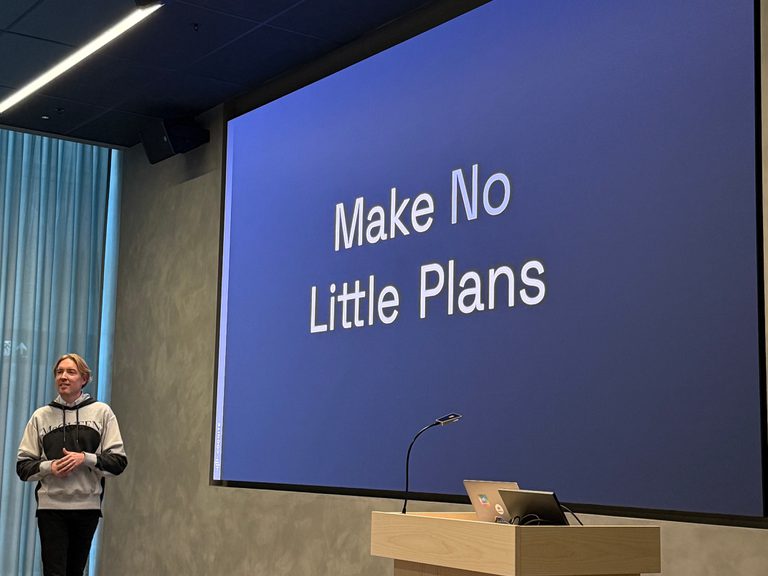Written by Peder Hjermann, Investment Manager at RunwayFBU
Digitalization of the energy system is a key enabler for the energy transition – impacting the entire energy value chain from generation and transmission through supply and consumption. There is a predictable yet fluctuating growth of clean and renewable energy, coupled with rising geo-political challenges, that creates an increasingly complex energy environment. Digital technologies provide the platform needed for sustainable, efficient, and resilient energy systems of the future.
Grid-related investment in digital technologies has grown by over 50% since 2015, and is expected to reach 19% of total grid investment in 2023. On the demand side, digitalization is imperative to improve energy and material efficiency for end-users. To illustrate, IEA estimates that demand-side responses could avoid up to 270 BUSD of investments in new electricity infrastructure.
Driven by the incipient consequences of the climate crisis and increased geopolitical tension, EU launched Action plan for Digitalizing the Energy System in October 2022 with the objective of developing a sustainable, secure market for energy services, ensure data privacy and support investment in digital energy infrastructure. Digitalizing the power systems will be even more crucial for efficiency and decarbonization in developing countries.
Role of software: Unlocking the full potential of energy systems
Software will play a pivotal role in achieving these efficiencies. We need algorithms that can predict and optimize energy usage patterns, real-time data analytics that can reduce waste, and intelligent systems that can manage complex grids to balance supply and demand seamlessly. The race has already started, with several concrete areas of opportunities arising within the software space:
- Smart meters and grid management: Smart meters can provide real-time data on electricity consumption, which can be used to improve grid management and reduce energy waste. For example, smart meters can be used to identify and correct outages more quickly, and they can also be used to shift demand away from peak periods.
- Distributed energy resources (DERs) and microgrids: DERs, such as solar panels, wind turbines, and batteries, can be connected to the grid and managed using software. This can help to integrate renewable energy sources into the grid and improve grid reliability.
- Demand response and energy markets: Software can be used to enable demand response programs, which allow utilities to pay customers to reduce their electricity consumption during peak periods. This can help to reduce the need for expensive new power plants.
- Internet of Things (IoT) and artificial intelligence (AI): IoT devices and AI can be used to collect and analyze data from the grid, which can be used to improve grid operations and maintenance. For example, IoT devices can be used to monitor the health of grid equipment, and AI can be used to predict outages.
- Blockchain and peer-to-peer (P2P) energy trading: Blockchain and P2P technologies can be used to create new energy markets that allow individuals to trade electricity directly with each other. This could help to reduce energy costs and increase competition in the electricity market.
- Cybersecurity: As more and more devices and systems are connected to the grid, the risk of cyberattacks increases. Utilities need to take steps to protect their systems, and need to be able to respond quickly and effectively to cyberattacks.
RunwayFBU: Accelerating the digitalization of electricity
At RunwayFBU, we are determined to support founders taking on challenges and harness the opportunities brought on by the energy transition. With early-stage capital and close access to leading corporates in the energy space, such as Aker Horizons and Cognite, we believe we are uniquely positioned to understand and help accelerate promising startups on their journey towards digitalization of electricity. We actively seek to work with founders, partners, and co-investors who share our strong belief in the transformative power of digitalization of electricity – come talk to us!
Examples from Portfolio
- Soren: Specializes in fast-forwarding green hydrogen production planning, a cornerstone of optimizing future energy use.
- Zerolytics: Will soon be launching their platform that gives global asset owners a unique tool to analyze the ongoing net zero transition and the associated financial risks for large, listed companies.
- Celsia: By making sustainability reporting simple and efficient, it directly aids companies in tracking and achieving their energy-related sustainability goals, fitting the theme of digitalizing electricity for sustainability.
Citations
- IEA Digitalization
- IEA World Energy Investments 2022
- EU Action plan for digitalizing the energy system
- Unlocking smart grid opportunities in emerging markets and developing economies
- Digitalization: enabling the new phase of energy efficiency
- Energy Facts Norway
- Blockchain-enabled Peer-to-Peer energy trading
- IEA: Enhancing cyber resilience in electricity systems
- ENEL: 5 ways battery storage optimization software maximizes value
- AI-enabled metaheuristic optimization for predictive management of renewable energy production in smart grids



